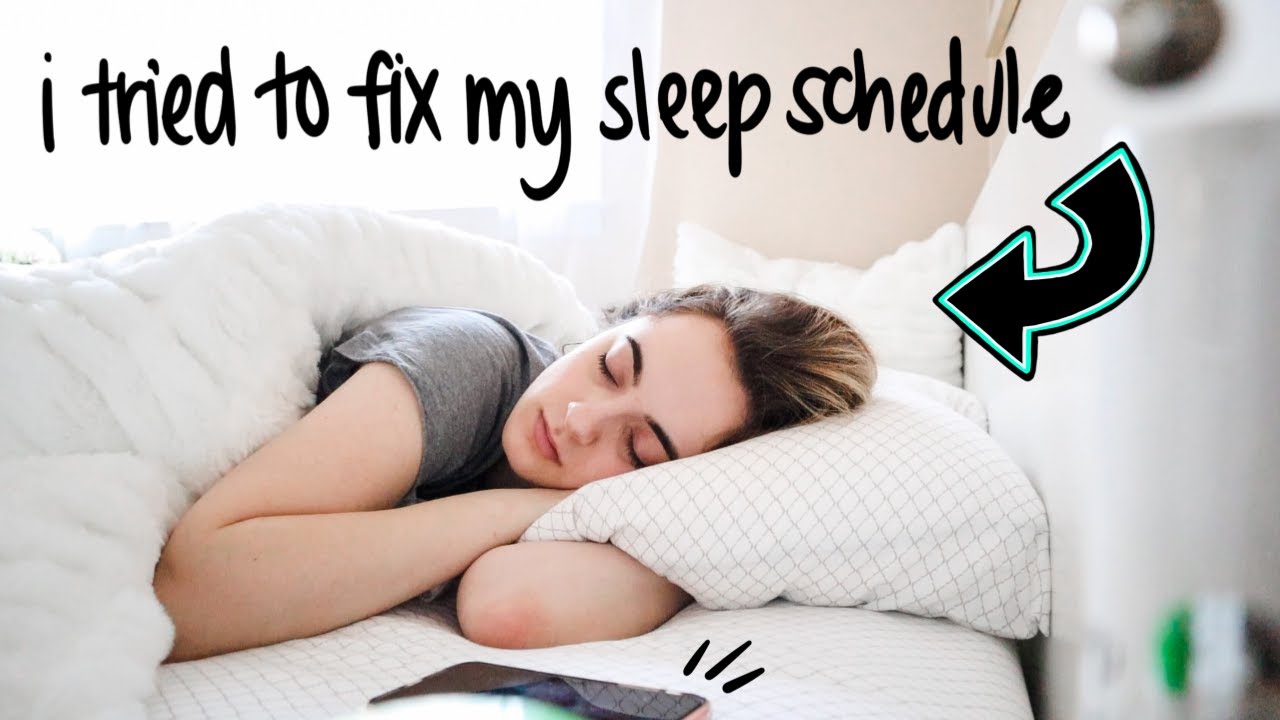How to fix sleep schedule?
If you are having trouble sleeping, there are some tips you can use to fix your sleep schedule. These tips include pre-sleep routines, exercising, and avoiding naps. In addition, you can try resetting your circadian rhythm. You can find more tips on how to fix your sleep schedule in WebMD.
Pre-sleep routine
If you’ve had trouble sleeping through the night, you may want to consider setting up a pre-sleep routine. Routines are reassuring to babies, and they help your body’s circadian rhythms. A good pre-sleep routine includes feeding with cuddles, a bath, a book, and a lullaby. You can abbreviate this routine before naptime if you prefer.
If you want to get better sleep, make sure your mind is calm and free from stress. This is vital because many problems are related to emotional difficulties, which may cause the mind to race when bedtime approaches. It may also lead to sleepiness in the daytime, when you should be awake. A pre-sleep routine can be a powerful way to fix sleep schedule problems and restore physical and mental well-being.
When setting a pre-sleep routine, you’ll also need to make sure you stick with it. Avoid hitting the snooze button or sleeping in on weekends, as these can throw off your new sleep schedule. You might be tempted to take a nap to make up for the lost sleep, but napping can actually be detrimental to your sleep schedule.
Exercise
Getting exercise at the right time can help you fix your sleep schedule. Exercise can help you sleep better and feel more rested during the day. It can also help you get a better night’s sleep. A few minutes of exercise in the morning can help you feel more rested. It’s a good idea to try to exercise as early as possible after a long day. However, if you have jetlag, you should avoid exercising too late in the evening.
When you exercise, you help your body relax and prepare for sleep. Aerobic exercise increases your heart rate and causes endorphins to be released. It’s best to exercise at least half an hour before bed. Try not to exercise too close to bedtime as this will keep you awake. Instead, try light yoga or stretching exercises before bed.
If your sleep schedule is out of whack, try adjusting your sleep and wake times slowly. This way, your body won’t be surprised to see a shift in your schedule. It’s also important to pay attention to the amount of light that you are exposed to during the day. Eventually, you’ll be able to adjust your sleep schedule so that you get more quality sleep. When you do this, you’ll feel much better and have a better day ahead.
Avoiding naps
When you’re trying to fix your sleep schedule, avoiding naps is crucial. Naps during the day disrupt the sleep cycle and can keep you up late. Everyone’s circadian rhythm is different, but most people have a dip in alertness from about one to three p.m. While you can’t completely avoid naps, you can try to minimize them during the day.
Naps should be taken as short as possible, and no more than half an hour. This will allow your body to rest properly and restore your energy levels. It’s also important to avoid napping in the evenings, as they can cause you to wake up groggy and tired.
Having a large meal before bed is not a great idea either. Large meals can cause acid reflux and heartburn during the night, which can keep you awake. Instead, try eating a light snack of something high in protein and low in sugar. One good snack is a handful of raw nuts. Taking a long nap can also signal your internal body clock that you have slept, and this can make it difficult to fall asleep at bedtime.
In addition, avoiding naps before bed may be counterproductive for you if you work at a desk all day. If you work in a desk job, you may not be able to avoid screens before bed, but you should avoid them afterward. If possible, try taking a walk or doing some exercise. This will get you back on track and keep you from falling asleep later.
Resetting your circadian rhythm
If you’re feeling sluggish, jet lag, or have an irregular sleep schedule, it’s possible you need to reset your circadian rhythm. Circadian misalignment can be caused by irregular work hours or light exposure, as well as stress or illness. Symptoms of circadian misalignment include trouble falling asleep and feeling wired in the afternoon and morning.
The best way to reset your circadian rhythm is to get enough sleep at night. It’s important to have at least eight hours of sleep. If you’re having trouble falling asleep or waking up in the morning, a sleep specialist can determine if you’re suffering from circadian rhythm disorder.
Another way to fix your sleep schedule is to make changes to your bedtime and wake-up time. A healthy sleep schedule is important for many aspects of life, from your physical health to your mood. Resetting your circadian rhythm is relatively easy, though you’ll have to make some adjustments the first couple of days. Ultimately, your body will adjust better if you make gradual adjustments instead of large jumps.
The best way to fix your sleep schedule is to change your wake-up time and bedtime to match your natural schedule. You should try to make a small adjustment to your schedule every day. If you can manage to stick to this for at least a month, it’s likely that you’ll be able to fix your sleep schedule within four weeks.
Changing your sleep routine
One of the easiest ways to reset your sleep schedule is by changing your sleeping habits. For example, you should avoid having a late night or an early morning, and try to wake up at the same time every day. This will ensure that your body clock is balanced. Additionally, you should avoid hitting the snooze button.
Changing your sleep schedule can be challenging for some people. Whether you have a family, a job, or a life commitment, it is important to create a schedule that works for you. The best way to do this is to set a consistent bedtime. Ideally, your eyes should be heavy before bedtime, but if you’re not tired yet, don’t force yourself to sleep. If you force yourself to sleep, you may end up staying in bed for longer than you intended, resulting in less sleep. Instead, try relaxing outside your room or listening to soothing music before going to bed.
Changing your sleep routine also means making gradual changes to your waketime and sleep time. To achieve this, make sure you follow a consistent schedule and pay attention to the amount of light you’re exposed to during the day. This will allow you to fall asleep when you want and maintain energy throughout the day.
Changing your sleep routine can also reset your body’s internal clock. A study conducted in the Rocky Mountains found that humans can get back to their natural sleep cycles by exposing them to more natural light during the day and less electric light at night. As a result, they woke up earlier and felt less tired.

